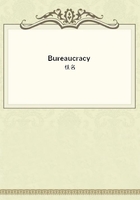
第33章 THREE-QUARTER LENGTH PORTRAITS OF CERTAIN GOVERNME
Jokes at the expense of this starving Amadis were made only in the spirit of mischievous fun which creates vaudevilles, for he was really a kind-hearted fellow and a good comrade, who harmed no one but himself. A standing joke in the two bureaus was the question whether he wore corsets, and bets depended on it. Vimeux was originally appointed to Baudoyer's bureau, but he manoeuvred to get himself transferred to Rabourdin's, on account of Baudoyer's extreme severity in relation to what were called "the English,"--a name given by the government clerks to their creditors. "English day" means the day on which the government offices are thrown open to the public. Certain then of finding their delinquent debtors, the creditors swarm in and torment them, asking when they intend to pay, and threatening to attach their salaries. The implacable Baudoyer compelled the clerks to remain at their desks and endure this torture. "It was their place not to make debts," he said; and he considered his severity as a duty which he owed to the public weal. Rabourdin, on the contrary, protected the clerks against their creditors, and turned the latter away, saying that the government bureaus were open for public business, not private. Much ridicule pursued Vimeux in both bureaus when the clank of his spurs resounded in the corridors and on the staircases. The wag of the ministry, Bixiou, sent round a paper, headed by a caricature of his victim on a pasteboard horse, asking for subscriptions to buy him a live charger. Monsieur Baudoyer was down for a bale of hay taken from his own forage allowance, and each of the clerks wrote his little epigram; Vimeux himself, good-natured fellow that he was, subscribed under the name of "Miss Fairfax."Handsome clerks of the Vimeux style have their salaries on which to live, and their good looks by which to make their fortune. Devoted to masked balls during the carnival, they seek their luck there, though it often escapes them. Many end the weary round by marrying milliners, or old women,--sometimes, however, young ones who are charmed with their handsome persons, and with whom they set up a romance illustrated with stupid love letters, which, nevertheless, seem to answer their purpose.
Bixiou (pronounce it Bisiou) was a draughtsman, who ridiculed Dutocq as readily as he did Rabourdin, whom he nicknamed "the virtuous woman." Without doubt the cleverest man in the division or even in the ministry (but clever after the fashion of a monkey, without aim or sequence), Bixiou was so essentially useful to Baudoyer and Godard that they upheld and protected him in spite of his misconduct; for he did their work when they were incapable of doing it for themselves.
Bixiou wanted either Godard's or du Bruel's place as under-head-clerk, but his conduct interfered with his promotion. Sometimes he sneered at the public service; this was usually after he had made some happy hit, such as the publication of portraits in the famous Fualdes case (for which he drew faces hap-hazard), or his sketch of the debate on the Castaing affair. At other times, when possessed with a desire to get on, he really applied himself to work, though he would soon leave off to write a vaudeville, which was never finished. A thorough egoist, a spendthrift and a miser in one,--that is to say, spending his money solely on himself,--sharp, aggressive, and indiscreet, he did mischief for mischief's sake; above all, he attacked the weak, respected nothing and believed in nothing, neither in France, nor in God, nor in art, nor in the Greeks, nor in the Turks, nor in the monarchy,--insulting and disparaging everything that he could not comprehend. He was the first to paint a black cap on Charles X.'s head on the five-franc coins. He mimicked Dr. Gall when lecturing, till he made the most starched of diplomatists burst their buttons. Famous for his practical jokes, he varied them with such elaborate care that he always obtained a victim. His great secret in this was the power of guessing the inmost wishes of others; he knew the way to many a castle in the air, to the dreams about which a man may be fooled because he wants to be; and he made such men sit to him for hours.